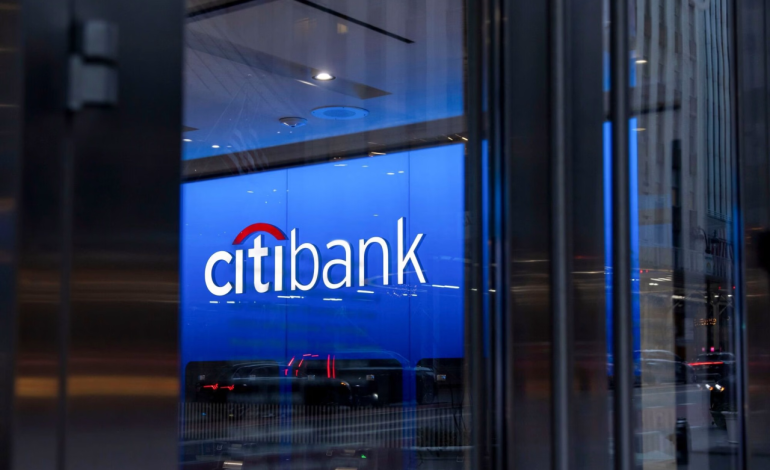Citigroup Inc. reported stronger-than-expected first-quarter earnings on Tuesday, driven by a surge in trading activity across both fixed income and equities markets.
The results reflect the bank’s ability to capitalize on market volatility and rising client demand.
The bank posted earnings of $1.96 per share, exceeding analysts’ consensus estimate of $1.85, while revenue came in at $21.6 billion, above the expected $21.29 billion. Net income rose 21% from the same period last year to $4.1 billion.
Citigroup’s trading division played a central role in the better-than-forecast results. Fixed income traders brought in $4.5 billion in revenue — an 8% year-over-year increase — amid heightened activity in the currency and government bond markets. Equities trading also delivered strong gains, with revenue climbing 23% to $1.5 billion, outperforming estimates of $1.4 billion.
Companywide, total markets revenue rose 12% to nearly $6 billion. This trend mirrors gains seen at peer banks like JPMorgan Chase and Morgan Stanley, which also benefited from active equity markets in the first quarter.
CEO Jane Fraser highlighted the bank’s progress in improving profitability and deepening investor confidence, citing a diversified business model capable of performing well under varied economic conditions.
“We’re continuing to earn credibility with investors,” Fraser said. “Our diversified franchise allows us to perform across a wide variety of macro scenarios.”
Fraser also addressed the broader economic backdrop, noting the uncertainties tied to evolving US trade policy.
“When all is said and done… the US will still be the world’s leading economy, and the dollar will remain the reserve currency,” she said.
Citigroup’s wealth division recorded its best quarter on record, with revenue up 24% to $2.1 billion, driven by growth in its “Wealth at Work” unit. The firm’s investment banking business also grew, with revenue rising 12% to $2 billion, largely on the back of higher M&A advisory fees.
Despite outperforming in many areas, the bank faced pressure in some segments. Debt and equity underwriting declined amid uncertainty surrounding US trade policies, and the company increased its loan loss provisions by 15% to $2.7 billion in anticipation of potential credit issues.
The personal banking unit reached a record $5.2 billion in quarterly revenue, while Citigroup’s services division — which handles global payments — posted its strongest first-quarter performance in a decade.
Fraser has made profitability a key focus, aiming to lift the bank’s return on tangible common equity to between 10% and 11% by the end of 2026. In Q1, that figure rose to 9.1%. To meet her goals, the CEO has reorganized the bank, brought in external talent, and implemented cost-cutting measures, including workforce reductions.
With input from CNBC, Bloomberg, and the Wall Street Journal.










The latest news in your social feeds
Subscribe to our social media platforms to stay tuned